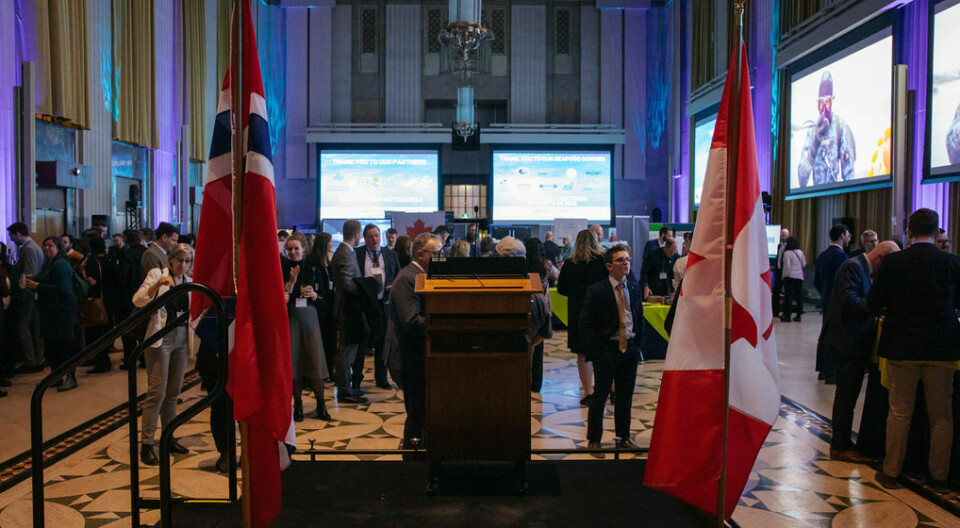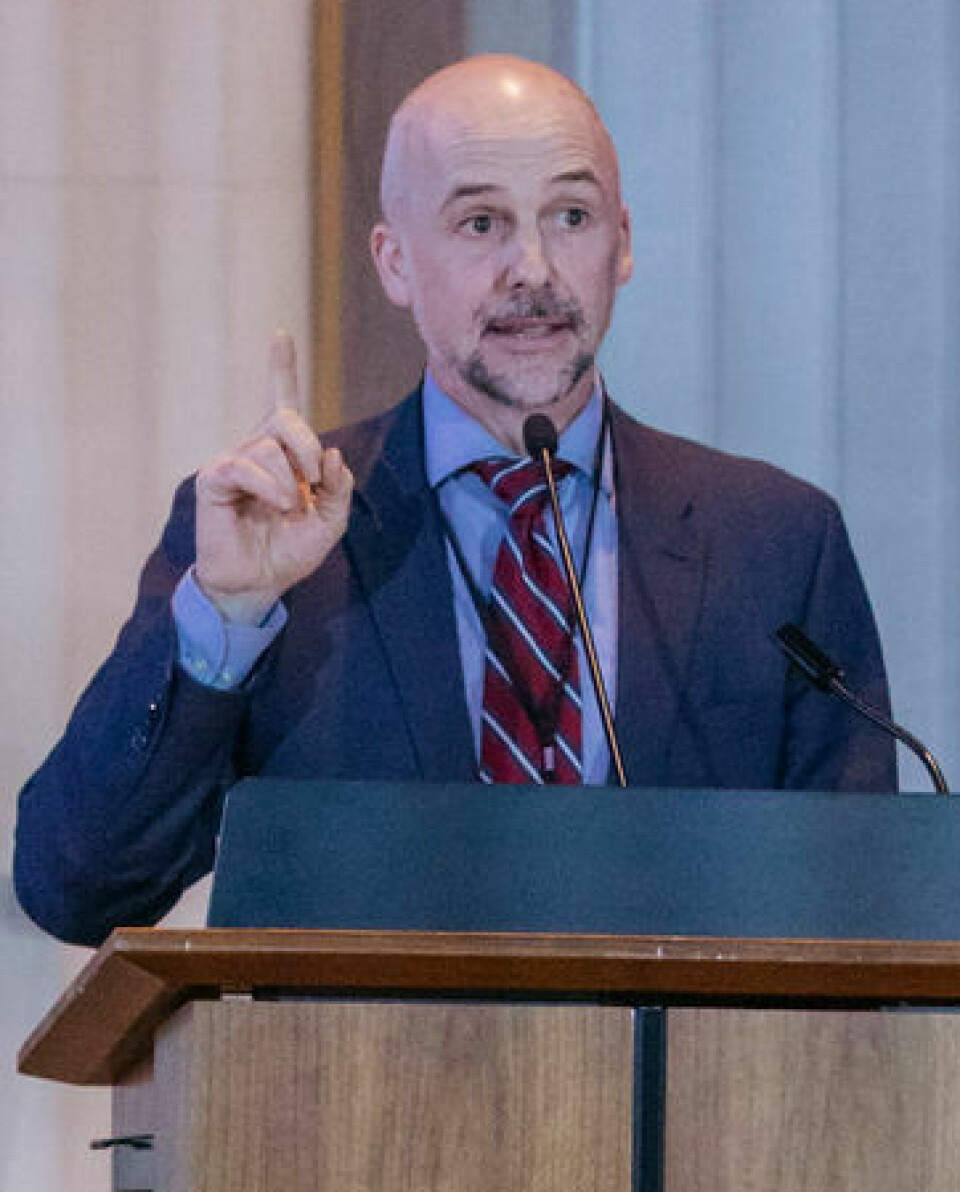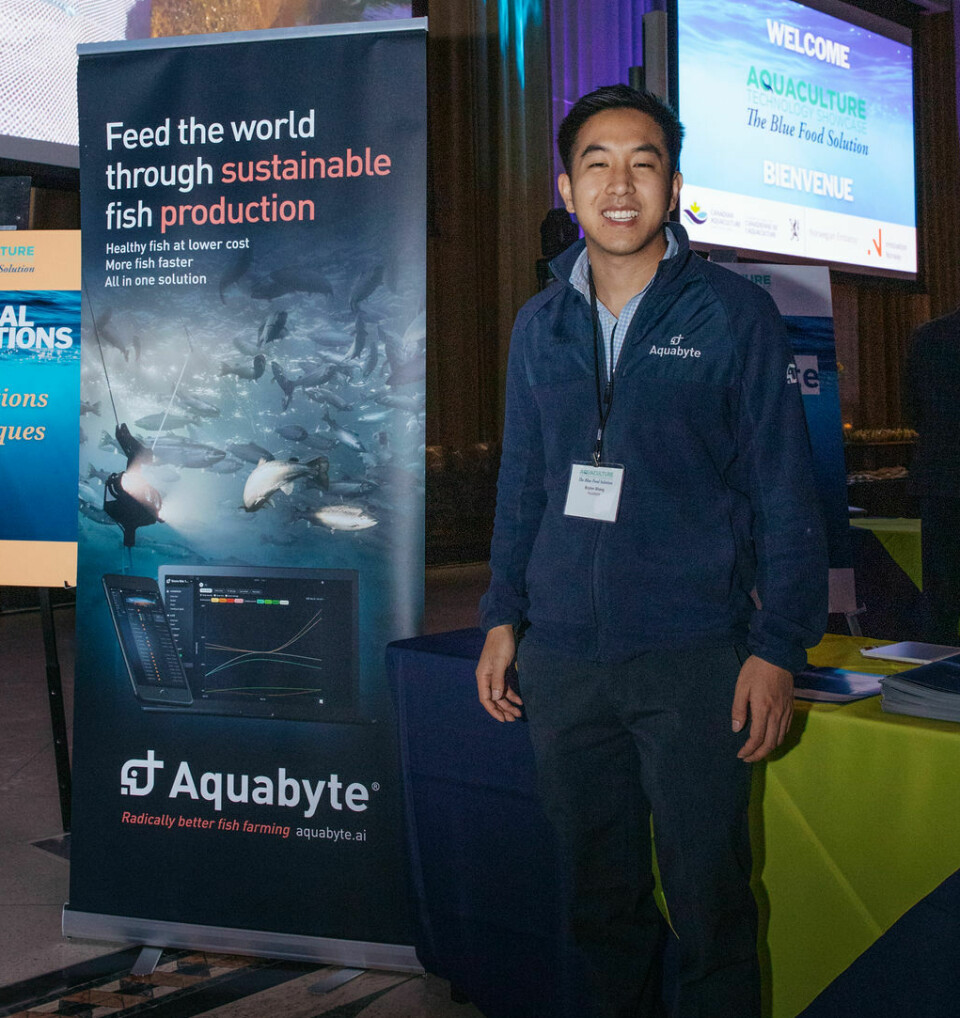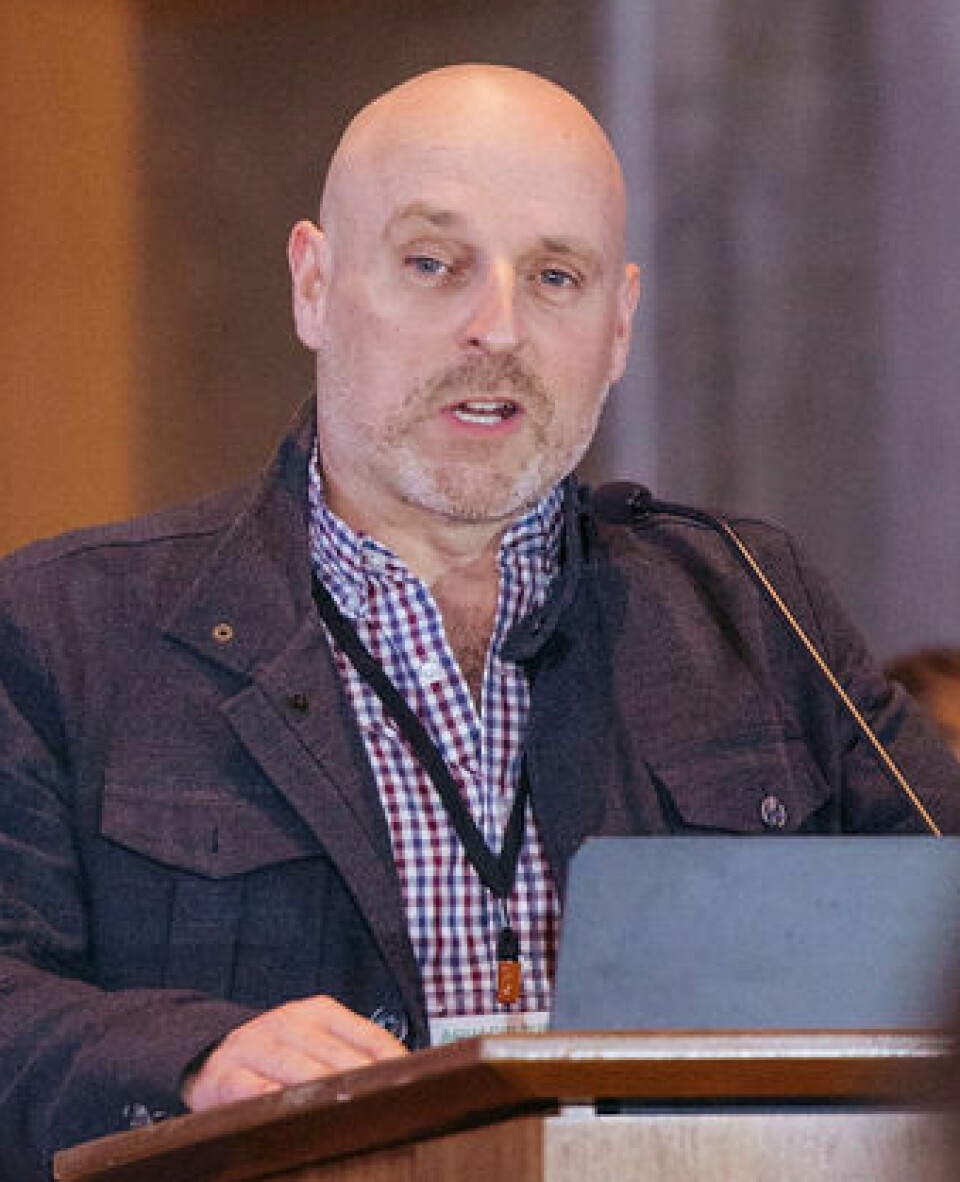
Canada's fish farming sector shows Ottawa the way ahead
Exhibition brings policy makers up to speed with advances in technology
Canada’s fish farming industry brought the coast to the capital last week by staging an aquaculture technology showcase on the doorstep of Parliament in Ottawa.
MPs were among those invited to the event last Thursday, which was intended to show policy and decision makers the technology that will shape the future of aquaculture.
The event was organised by the Canadian Aquaculture Industry Alliance (CAIA), along with Norway – home to many industry suppliers and the parent companies of Mowi Canada and Grieg Seafood BC/Grieg Seafood NL – under the auspices of the Norwegian Embassy and Innovation Norway. It was held in a former bank building that now forms part of the Parliamentary Precinct.
Accomplished more
“While our purpose in hosting the event was to showcase technology and innovation in finfish aquaculture, what was more striking to guests were the people behind it - talented engineers, scientists, business and community leaders from across Canada, deeply committed to the future of this sector,” said CAIA president and chief executive Tim Kennedy.
“Our objective was simply to introduce policy and decision makers to our potential, but we accomplished much more than that.”

The event included a reception with a menu that featured nine different species of Canadian farmed seafood including Atlantic salmon, Chinook salmon, Arctic char, halibut, sablefish, Atlantic and Pacific oysters, blue mussels, and Manilla clams.
Canada’s Ocean Supercluster, Farm Credit Canada and the Canadian Federation of Agriculture were supporting partners.
Marine Donut
Canadian companies taking part in the showcase included remotely operated vehicle provider Deep Trekker, and technology supplier Poseidon Ocean Systems Ltd, along with fish farmer Golden Eagle Sablefish, which works in partnership with the Kyuquot-Checleseht First Nations in BC, and the Kitasoo Xai’Xais First Nation, which produces Klemtu Spirit brand salmon.
Other exhibitors included Bluegreen Canada Inc., the Canadian subsidiary of Norway’s Bluegreen Group, an expert in thermoplastics that has worked on the Preline and FishGlobe floating closed containment systems being trialled by salmon farmers Lerøy and Grieg in Norway.
Bluegreen now owns the rights to the Marine Donut, a floating torus-shaped enclosed fish farm originally conceived by Mowi. The Donut has “enormous potential to reduce biological, environmental and political pressures”, according to Bluegreen Canada director Mark Lane, former executive director of the Newfoundland Aquaculture Industry Association.
Political objections
Bluegreen believes its technology should mitigate problems such as sea lice, extremes in water temperatures, and the spread of infectious salmon anaemia (ISA) that have dogged salmon farming on the Atlantic coast of Canada.
Floating closed containment solutions such as the Donut potentially overcome objections that some Canadian politicians have towards open-net pen salmon farming, particularly interactions with wild salmon which critics allege cause harm to wild stocks.
Such concerns have led to the Liberal-led federal government to announce that it will "transition" away from net-pen farming in British Columbia.
Farm closures
In December 2020, former Canadian fisheries minister Bernadette Jordan also announced that she was closing down 19 salmon farms in the Discovery Islands in BC, despite evidence from her own Department of Fisheries and Oceans that the farms were not harming wild stocks. Current fisheries minister Joyce Murray recently refused to reinstate licences for the farms, citing new studies.
First Nations in BC are split over the issue, with some supporting Murray's stance but 17 Nations backing fish farming in their territorial waters.
Last year they formed the Coalition of First Nations for Finfish Stewardship to secure licence renewals in the Discovery Islands and elsewhere. The Coalition was among companies and groups at the technology showcase last week.
Following Murray's recent refusal to renew the Discovery Island licences, the Coalition stated that it can no longer trust the minister "to deliver a thoughtful, unbiased transition plan for the remaining salmon farms in the sovereign territories of Nations that wish to host them”.
























































